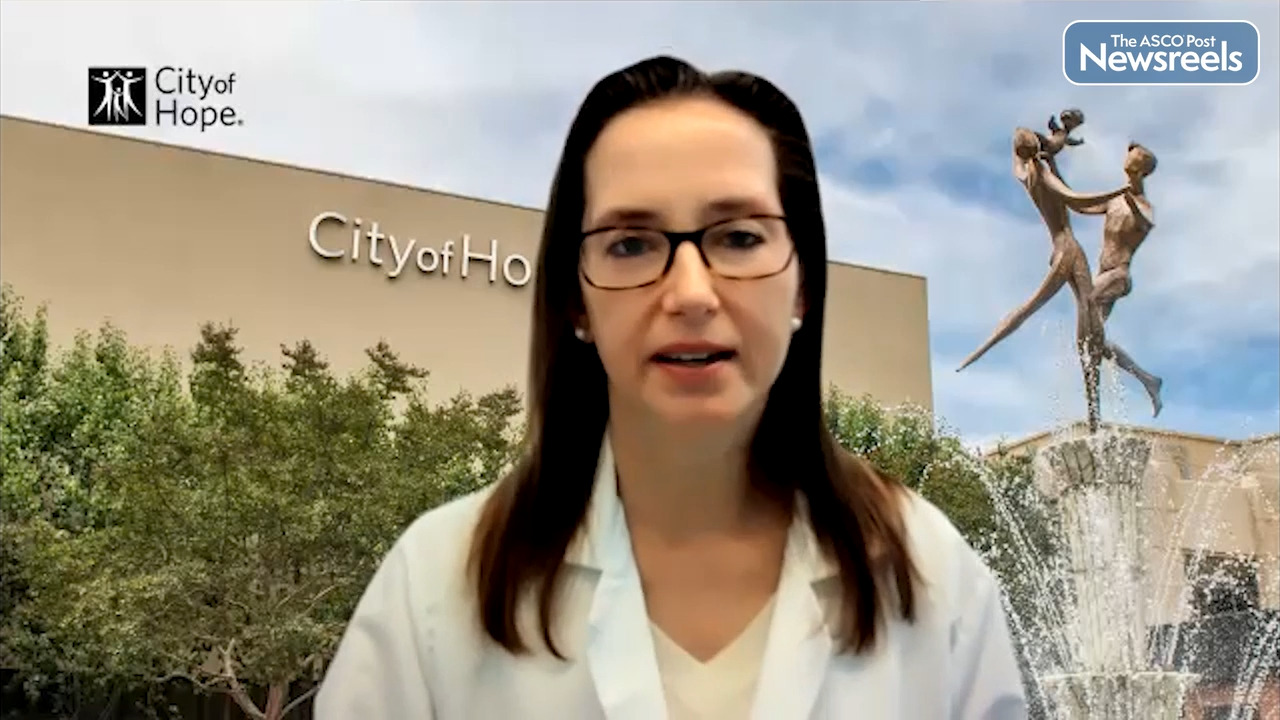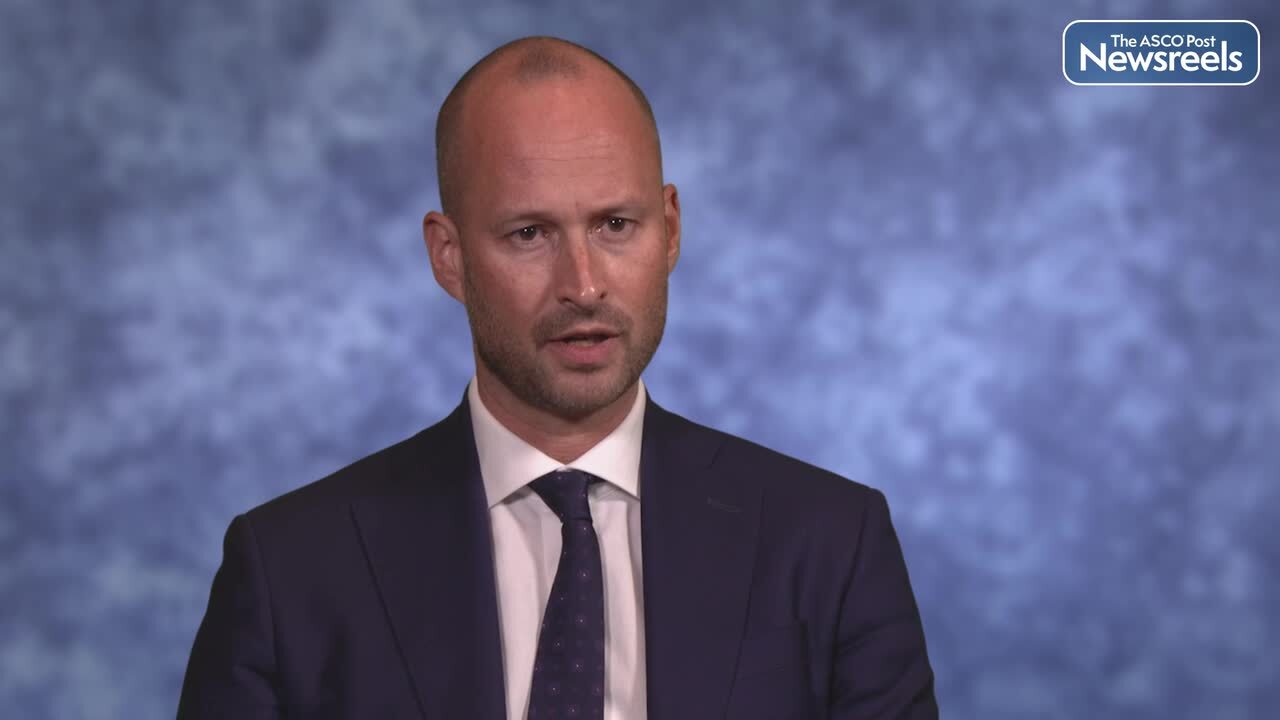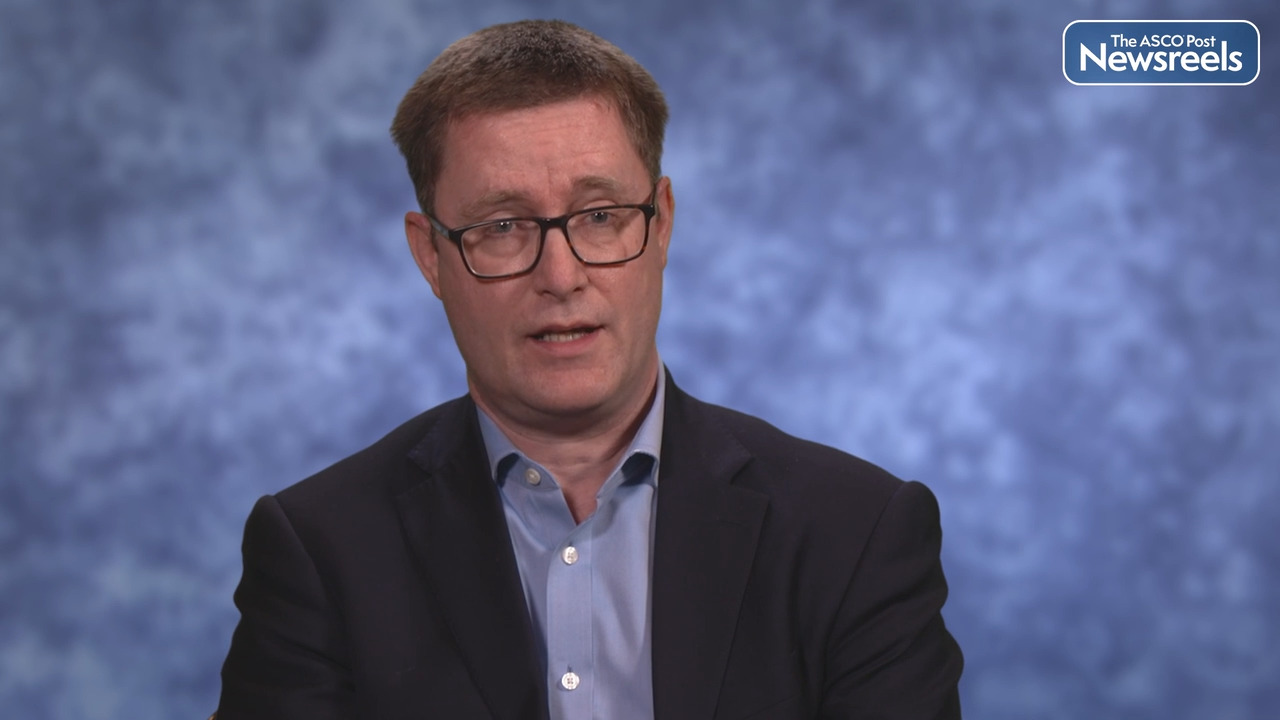Sumanta K. Pal, MD, on Advances in Genitourinary Cancer Treatment: Expert Perspective
2022 ASCO Genitourinary Cancers Symposium
Sumanta K. Pal, MD, of City of Hope National Medical Center, discusses some key research developments in kidney cancer, including data on nivolumab and ipilimumab with or without CBM588 in metastatic renal cell carcinoma; intestinal microbiome associated with the development of grade 3 or 4 adverse events in patients with metastatic disease who have been treated with nivolumab plus ipilimumab and probiotic support; the link between TERT promoter mutations and clinical outcome with immune checkpoint inhibitor therapy for advanced urothelial cancer; mutations in the androgen receptor gene in patients with prostate cancer receiving novel androgen deprivation treatments; and findings on waning antibody titers in patients who have received COVID-19 vaccinations (Roundup of Abstracts 371, 561, 374, Posters 38 and 48).
The ASCO Post Staff
Tanya B. Dorff, MD, of City of Hope National Medical Center, discusses the first-in-human phase I findings showing that prostate stem cell antigen (PSCA) CAR T-cell therapy is feasible in patients with metastatic castration-resistant prostate cancer, with preliminary antitumor activity exhibited.
The ASCO Post Staff
Axel S. Merseburger, MD, of the University Hospital Schleswig-Holstein, discusses results from a phase IIIb study of chemotherapy-naive patients with metastatic castration-resistant prostate cancer who have been treated with docetaxel plus prednisolone and experienced disease progression on enzalutamide. The data suggest that continued enzalutamide plus docetaxel improved progression-free survival compared with placebo plus docetaxel (Abstract 15).
The ASCO Post Staff
Alicia K. Morgans, MD, MPH, of Dana-Farber Cancer Institute, discusses findings from the largest digital survey conducted in patients with prostate cancer, allowing identification of unmet needs in the patient journey. Preliminary data suggest that lower rates of screening may correlate with higher rates of symptoms at diagnosis and potentially later-stage diagnosis.
The ASCO Post Staff
Matthew R. Smith, PhD, MD, of Massachusetts General Hospital Cancer Center, discusses overall survival findings from the ARASENS trial, which assessed the efficacy of the androgen receptor inhibitor darolutamide vs placebo in combination with androgen-deprivation therapy and docetaxel for patients with metastatic hormone-sensitive prostate cancer (Abstract 13).
The ASCO Post Staff
Simon J. Crabb, PhD, MBBS, of the Southampton Experimental Cancer Medicine Centre, discusses data from the ATLANTIS trial, in which the authors hypothesized that switch maintenance therapy with the PARP inhibitor rucaparib, in patients who have derived clinical benefit from first-line chemotherapy, may improve outcomes for those with metastatic urothelial carcinoma that harbored a composite biomarker for DNA repair deficiency (Abstract 436).





